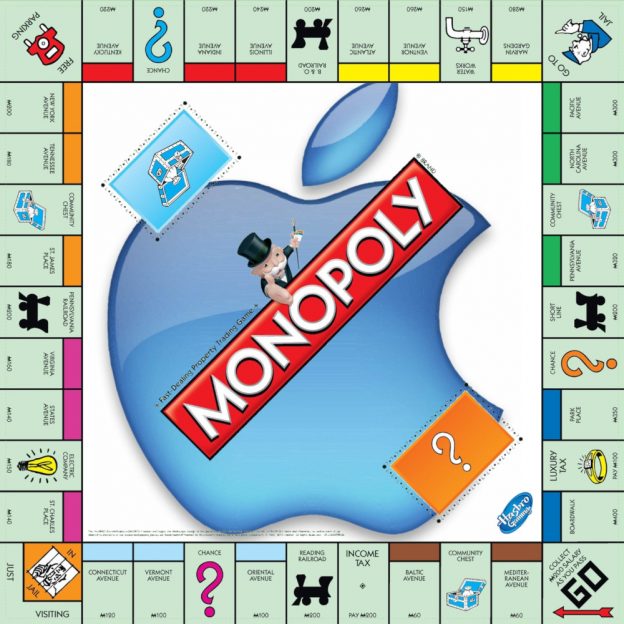This past May the U.S. Supreme Court ruled 5-4 against Apple on the question of whether a group of iPhone users could file an antitrust lawsuit against Apple arising from their contention that Apple’s App Store constitutes a monopoly and thus has harmed consumers. Their primary argument is that Apple’s 30% fee on every app store sale constitutes a “tax.” Consumers are “harmed” because most developers simply pass that additional cost onto the consumer. So apparently if some entity is construed to hold a monopoly market position and imposes a “tax”, that is a bad thing. But if the government does precisely the same thing that is just a-ok. On the precedent of this ruling it should now be possible to overturn the taxing authority of every level of government! But I won’t hold my breath.
In point of fact, Apple does not hold a monopoly position in the market. To suggest so quickly leads to absurd wrongheaded conclusions such as Ford is a monopoly because only they can sell Ford cars or that Robert Di Niro is a monopolist because he is the only one that can star as Robert Di Niro in a movie. The obvious rejoinder to such claims would be that “well that’s silly, there are other manufacturers of cars and other actors, so the consumer can simply substitute the good if they find the supply too constrained or the price too high.” Exactly. Last time I checked Apple does not have the only “App Store” in town. Google has their equivalent and there are number of other independent “Android” app stores as well. But even if Apple did have the only App store platform they would still not be in a monopoly position. Anything that can be done in mobile apps can be done through a desktop or web interface.But even if that were not true, Apple would still not be a monopolist. Why? Because no company in a free market can become a monopoly (other than governments themselves which exert their monopoly provision of certain market goods (security, courts, roads, regulation) through coercive violence). Just as Ford competes with other automakers to sell cars, they are also competing with every other market entrant. Everyone is vying for the consumer’s dollar and so everyone is competing against everyone.Apple competes against pet stores, Ford competes against Apple, pet stores compete against shoe sellers, and so on.
Every consumer, no matter how wealthy, has a limited supply of funds. When they use those funds they economize them, that is, they rank those things they desire in order of importance and spend their money on the most important items first (food, shelter) and then work their way down the list until at some point they only have enough for one more thing. The next entrant on that list lost out to the one just before, so in that sense they were competing with them head to head. So the App Store could lose out to someone who chose to go to the movies or to buy their dog a treat, or it could be vice versa. If the consumer has a choice (even if a difficult one) then there is no monopoly power. If you hate big oil you can choose to go electric.If you hate all cell phone carriers you can choose to not have a cell phone. It may be a difficult choice that imposes other costs on you, but you are free to do so. No one will throw you in a cage if you don’t sign up for cell service. But they will if you don’t pay your taxes.
In the broader context though this case was rather amusing. That a company can be sued for providing to the consumer this thing that literally didn’t even exist 15 years ago demonstrates an utter lack of comprehension by the public at large of the benefits bestowed on them by the market economy aka capitalism. You should rejoice that there are so many greedy SOB’s seeking to take your money and giving you in return the most incredible, standard of living enhancing tools in human history… things you could not create yourself if you had a hundred years to figure it out. Very sad. Many people agree.


